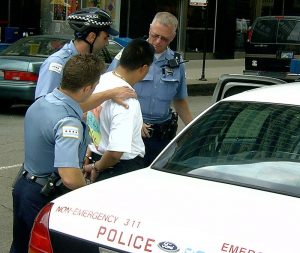 It’s no secret that Wisconsin has long been known for having some of the most lenient drunk driving laws in the country. Throughout the spring semester I saw firsthand just how limited the consequences can be—compared to other states like my native Illinois—as first-time offenders were simply cited for ordinance violations in Milwaukee Municipal Court and not charged criminally. However, there have been efforts in recent years to crack down on drunk driving in a state famous for its beer. State legislators have passed a number of measures to deal help law enforcement, and this past week one such measure found itself before the United States Supreme Court.
It’s no secret that Wisconsin has long been known for having some of the most lenient drunk driving laws in the country. Throughout the spring semester I saw firsthand just how limited the consequences can be—compared to other states like my native Illinois—as first-time offenders were simply cited for ordinance violations in Milwaukee Municipal Court and not charged criminally. However, there have been efforts in recent years to crack down on drunk driving in a state famous for its beer. State legislators have passed a number of measures to deal help law enforcement, and this past week one such measure found itself before the United States Supreme Court.
In its decision in Mitchell v. Wisconsin, the Court upheld Wisconsin’s implied consent statute and ruled that states are not restricted from taking warrantless blood samples from unconscious drunk-driving suspects by the Fourth Amendment.
In 2013, Mr. Mitchell was arrested in Sheboygan Wisconsin after police, who were responding to reports of an intoxicated driver, found him drunk and disheveled at a local beach. Mitchell stated that he wound up there after he felt too drunk to drive. The officer decided not to preform sobriety tests at the scene because Mitchell’s condition would have made it unsafe to do so. Instead, a preliminary breath test was administered with a resulting BAC of 0.24. While being transported to the police station Mitchell’s condition deteriorated and he was eventually taken to the hospital. Upon arrival, Mitchell was completely unconscious. He was then read the standard Informing the Accused form and a blood sample was taken, all without him regaining consciousness. That sample indicated a BAC of 0.22. While consent to a blood draw is normally withdrawn when the Informing the Accused is read—a form that actually asks if the subject will submit to an evidentiary test—Mitchell was obviously unable to withdraw consent in his condition.
But why was Mitchell required to withdraw consent in the first place?

 This third and final post reflecting the “In Search of Better Outcomes” theme of the new Marquette Lawyer magazine begins with a third pair of articles, the one that actually provides the quoted phrase (see
This third and final post reflecting the “In Search of Better Outcomes” theme of the new Marquette Lawyer magazine begins with a third pair of articles, the one that actually provides the quoted phrase (see 